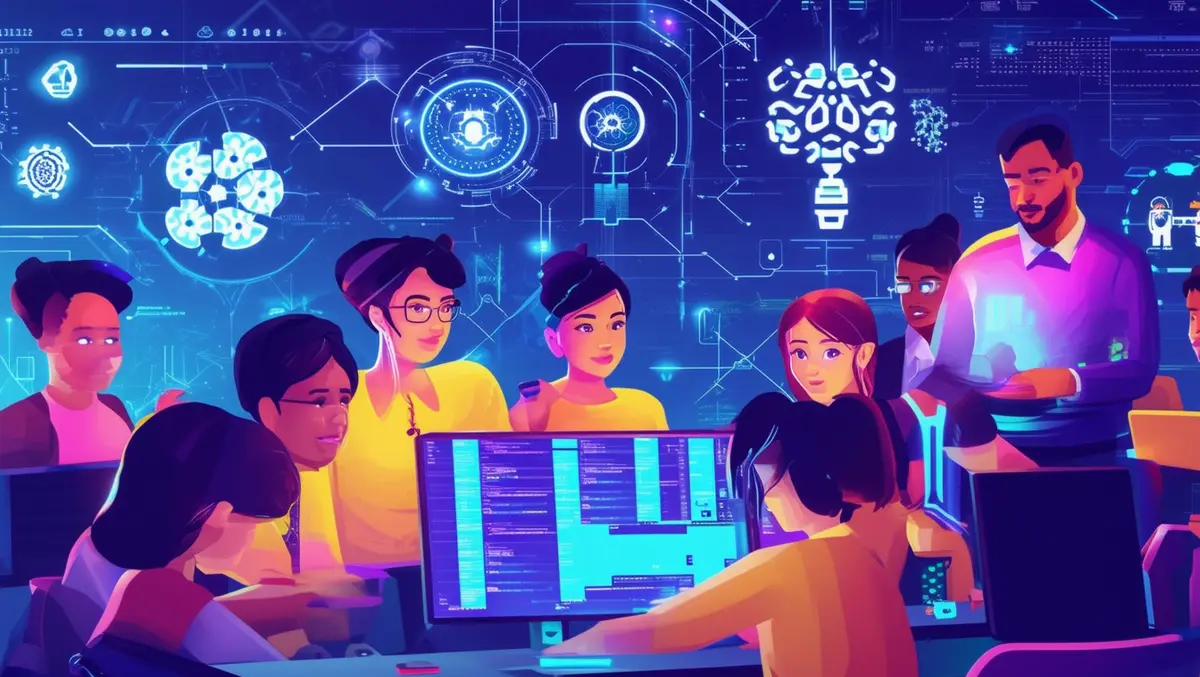
National Coding Week focuses on how AI is impacting coding
National Coding Week, which runs from 16th to 22nd September, serves as an annual reminder of the importance of digital literacy and coding skills for people of all ages. This year's focus is on the impact of artificial intelligence (AI) on coding, inviting key industry figures to share their perspectives and advice.
Hans De Visser, Chief Product Officer at Mendix, highlights the significant influence AI is having on coding processes.
He says, "According to Gartner, 75% of developers will use AI code assistants by 2028. The rise of generative AI tools has changed how software developers tackle traditional ways of coding. We are seeing more developers use the technology to help deliver applications faster, more consistently, and with higher quality."
He stresses that while AI can streamline development and foster innovation it's not a replacement for human developers, and the creative force of the developer can't be recreated by technology alone.
"This National Coding Week, it's important to remember that AI will continue to streamline development and impact innovation; it can't and won't replace developers. This is because generative AI applications in development are only as good as the large language models they're built on. Tools and solutions only enable developers to use the services and models that work for them and what they're trying to develop. They are not creative; they are not innovative thinkers. AI is a tool. A developer is a creative force, a builder, a problem solver, and much more. AI is a tool. A developer is a creative force, a builder, a problem solver, and much more," he says.
The role of AI, according to De Visser, is to enhance productivity and efficiency, and needs to be governed and controlled accordingly.
He says, "AI coding systems are valuable tools that enhance developers' productivity and efficiency. With proper governance and control, AI has the potential to help deliver applications faster and with greater consistency throughout the innovation process."
A similar sentiment is echoed by Alois Reitbauer, Chief Technology Strategist and Head of Open Source at Dynatrace. Reitbauer underscores the need for coding education to evolve in line with AI advancements.
"The rise of generative AI has raised the question of whether the 'everyone should code' movement should continue. The answer is ultimately yes, but with an important caveat: coding education programs and best practices need to evolve," he notes.
Reitbauer explains that traditional coding skills are becoming less vital as organisations invest in automated code generation. He advocates for a shift in educational focus towards assessing AI-generated code.
"People need to improve their ability to assess the code generated by AI so they can become expert 'pair programmers of AI,' meaning they are constantly checking the AI's work as it's done," Reitbauer asserts.
Given the prevalent training of AI models on potentially flawed code, developers must be adept at identifying and correcting security vulnerabilities and performance issues in AI-generated code, he says.
Looking to the future, Reitbauer emphasises the necessity for new skills in coding curricula, including understanding AI behaviour, prompt engineering, and ethical considerations. He warns that without such updates, the next generation of developers may be inadequately prepared for industry demands. "Without a shift in education, we run the risk of not preparing junior developers for the dangers around code quality, security, and the potential overreliance on AI-generated solutions," he warns.
National Coding Week looks to address these challenges by inspiring more young people to engage with coding. However, as Reitbauer and De Visser both point out, the initiative must also evolve to stay relevant.
Reitbauer notes, "Software engineers can't just learn how to create a new app; they need to know how to safely use open-source code libraries and ensure any AI-generated code is watertight." These competencies, he believes, are crucial for preparing future coders for a rapidly changing development landscape.
As the influence of AI continues to grow, the need for a nuanced approach to coding becomes ever more important. By embracing these changes, the tech community can ensure that the next generation of developers is equipped to handle both the opportunities and challenges that lie ahead.


